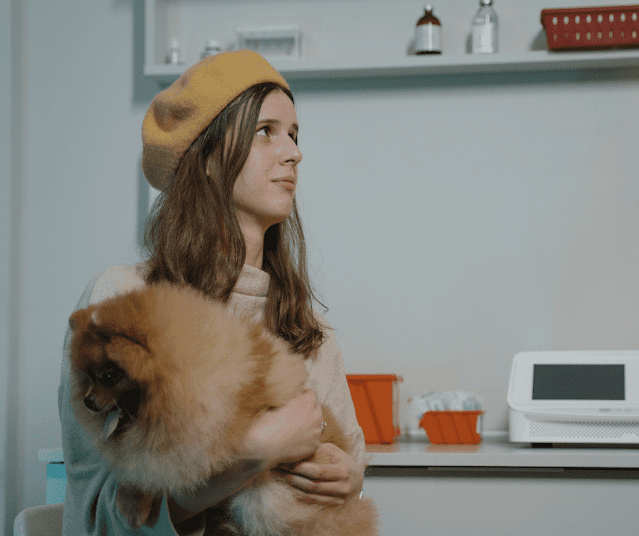Before taking your pet to the veterinary clinic, you must prepare yourself carefully.
Clinic specialists have shared helpful tips and recommendations to make your visit as helpful as possible.
Important steps to prepare before visiting a veterinary clinic
1- When you arrive at the clinic, prepare in advance and take with you all the medical documents available for your animal. These may be extracts from medical histories, results of studies and diagnostic analyses, appointments, etc. In this case, it is not at all necessary that these documents be recent since the doctor will want to examine and check the indicators more closely.
In addition, the owner must have a passport with him - he may be needed to conclude an agreement with the clinic.
2- For a visit to a veterinarian, it is imperative to have complete and detailed information on the vaccinations given to the animal and its treatments against worms and external parasites. The names of the means that were used for processing should be indicated.
<><>
3- If you have a dog, do not forget to bring a leash and a muzzle. This may be necessary if your pet becomes very nervous while waiting in line at the veterinary clinic. It is important to remember that a visit to the doctor for a pet is always a stressful situation because it is surrounded by unfamiliar smells and people. A muzzle can be very helpful if a dog feels in danger and defends itself.
4- Before going to the clinic, try to prepare yourself for the doctor's questions which you will certainly have to answer. At the same time, it is very important to remember or record all the details without missing anything important. When did you notice any changes in your pet's health? How and when did his behavior change? What preceded that?
5- It is best to get into the habit of bringing your animal to the clinic on an empty stomach. You should not feed him the night before, nor should you give him a drink in the morning. This will prevent you from coming back to donate blood or perform an ultrasound - these procedures are done on an empty stomach. Additionally, if anesthesia or sedation is required, the animal must also be hungry.
<><>
6- If your animal has secretions (for example, ears or eyes), avoid wiping or treating it. The veterinarian must examine this manifestation of the disease and assess the overall picture in order to make the correct diagnosis.
7- If your dog or cat has symptoms that indicate a digestive system (for example, an animal is suffering from diarrhea or vomiting), then it is necessary to make a complete list of what is included in the dog's diet. 'animal. The same should be done if allergic reactions occur. When listing industrial rations in this list, be sure to specify what the protein and carbohydrate source is (eg chicken/beef/salmon with rice/buckwheat/potatoes, etc.).
8- It often happens that a stressed animal has a high body temperature. Therefore, when measuring in the clinic, the result may turn out to be uninformative, for this reason, it is recommended to measure the temperature at home when the animal is in a calm state.
<><>
9- A urine test may be required if your pet exhibits a variety of alarming symptoms. This analysis is mandatory if you have noticed changes in your pet's urination (the pet feels pain, goes to the toilet too rarely or too often). It is best to collect urine from a starving animal; a medium portion is desirable for analysis. Your dog shouldn't be too picky, you'll need a clean litter box or non-absorbent litter to collect your cat's urine.
After collecting the urine, you have no more than four hours to have it tested, but it is advisable to do so within the first two hours. It is recommended to collect urine for analysis before leaving the clinic. Remember not to put the urine container in the refrigerator for storage.
10- For digestive problems and weight loss, your veterinarian can perform a stool analysis. If it is an analysis for worm eggs, the feces should be as fresh as possible. When analyzed for digestibility, feces can be tested within 12 hours, and material can be collected in advance and stored in the refrigerator. For any fecal analysis, a sufficient volume of material is approximately equal to the volume of a box of matches.
11- Today everyone has a smartphone or other gadget with a camera. Try not to be mistaken and use it to record a video if something unusual happens to your pet: a seizure or an epileptic seizure. This video can help the veterinarian establish the cause and diagnosis.
12- If your cat or your dog is very nervous when traveling in transport, you must help your animal to face this fear. In order for the animal to easily endure the trip to the clinic, a few days before the scheduled visit, start giving it a light sedative "Stop Stress". It comes in the form of drops and tablets, so you can choose the most convenient form.


